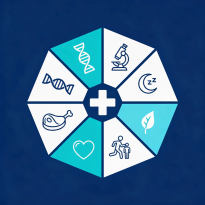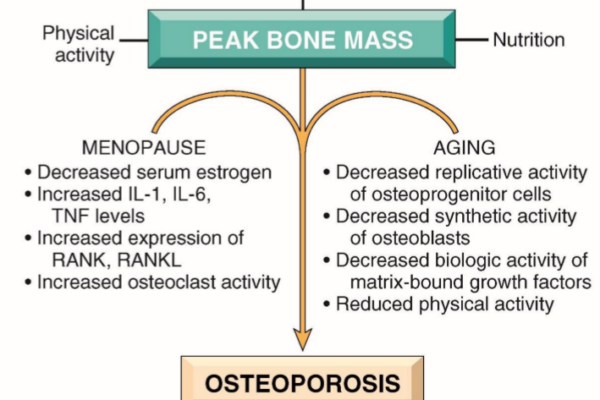Beyond the Hype: 5 Essential Truths About the Constitution Diet After 15 Years
In the modern pursuit of wellness, the importance of diet has never been more prominent. As scientific research continues to reveal the profound impact of food on our health, and as we enjoy greater material abundance, people are increasingly seeking personalized nutrition plans. One fascinating approach that has gained traction is the constitution diet, rooted in Traditional Korean Medicine (TKM).
TKM operates on a principle known as Shik-yak-dong-won, which translates to “food and medicine share the same origin.” This philosophy holds that food, consumed daily over a lifetime, can have a cumulative effect just as powerful as potent herbal medicine. We often see this in vibrant older adults who have prioritized healthy, mindful eating.
This path often leads to the 8-Constitution Medicine and its specific dietary guidelines. The core idea is simple: to balance your body by eating foods that support your innately weaker organs while reducing foods that overstimulate your stronger ones. But does this mean you have to follow it with rigid perfection? After 15 years of personal and clinical experience, I’ve learned some surprising truths.
My Journey: From a New Life to a Hard Lesson
When I was first diagnosed with my constitution in my 20s, I embraced the lifestyle wholeheartedly. I followed the dietary recommendations and constitutional acupuncture treatments with dedication. The results were astounding. My health improved so dramatically that I felt like I had been given a new life. This incredible transformation fueled my passion to study the constitution diet more deeply.
For a long time, I maintained this peak state of health. This was during a period when I was opening my own clinic—a time filled with significant stress. However, I was able to thrive because I invested in myself. I made time for exercise to cultivate my energy (Qi), ate nourishing food, and maintained my emotional well-being through reading.
Then, things changed. A later period in my life saw my health decline, becoming even worse than before my initial diagnosis. I was swamped by draining work, leaving no time for exercise, reading, or emotional self-care. Interestingly, my adherence to the constitution diet during this time didn’t seem to make much of a difference. This led to a profound realization.
Here are the five essential truths I learned from my 15-year journey.
1. Extreme Strictness Can Make You Fragile
One of the most unexpected feelings I had after years of strict adherence was a sense of weakness. By only exposing my body to “good” foods, I felt like I had become a “flower in a greenhouse”—delicate and unable to handle anything outside a perfectly controlled environment. This experience aligns with modern research showing that a certain amount of positive stress (eustress) is essential for building resilience.
2. “Harmful” Foods Aren’t Always the Enemy
From a constitutional medicine perspective, foods considered “unsuitable” for your type should certainly be avoided during times of illness. However, when you are healthy, these very foods can sometimes serve a unique purpose. They can challenge your system in a way that awakens and strengthens your inherent constitutional characteristics. In an age where authenticity and “being yourself” are your greatest assets, this can be a surprising advantage.
3. Awareness Is More Powerful Than Restriction
This is my most important takeaway. I now believe that the goal isn’t to perfectly restrict your diet, but simply to know what foods best suit your constitution. Once you have this awareness, you will naturally and subconsciously moderate your choices without the stress and guilt of a rigid rulebook. Besides, let’s be realistic: even if you decide to follow the constitution diet perfectly, life makes 100% adherence nearly impossible.
4. The Diet is Only One Piece of the Puzzle
My experience proved that a holistic approach is non-negotiable. Your health is not built on diet alone. It’s a balanced equation that includes physical activity to build energy, nourishing foods for fuel, and mental stimulation like reading to maintain a healthy emotional state. Neglecting any of these areas will compromise your well-being, no matter how “perfect” your diet is.
5. Your Emotional State Is the Final, Crucial Ingredient
If I had to choose the single most important factor for health, it would be your emotional state. You can eat the most beneficial, organic, and constitutionally-perfect meal, but if you consume it while feeling angry, stressed, or sad, it can act like poison. Negative emotions severely hinder proper digestion, absorption, and metabolism.
Ultimately, the constitution diet is a valuable map, not a rigid cage. Use its wisdom to guide your choices, but remember to nurture your entire being—mind, body, and spirit.
I hope you have a day where you can simply brush off any frustrations and move forward with ease.
For the original Korean text, visit here.
If you’re curious about the basics of traditional Korean medicine and health, read the following article:
The Truth About 8 Constitution Medicine: A Revolutionary Healing Framework Explained
Learn Why Studying JangSang Medicine is Important.
Frequently Asked but Silly Questions (Foods Good for the Liver??)


